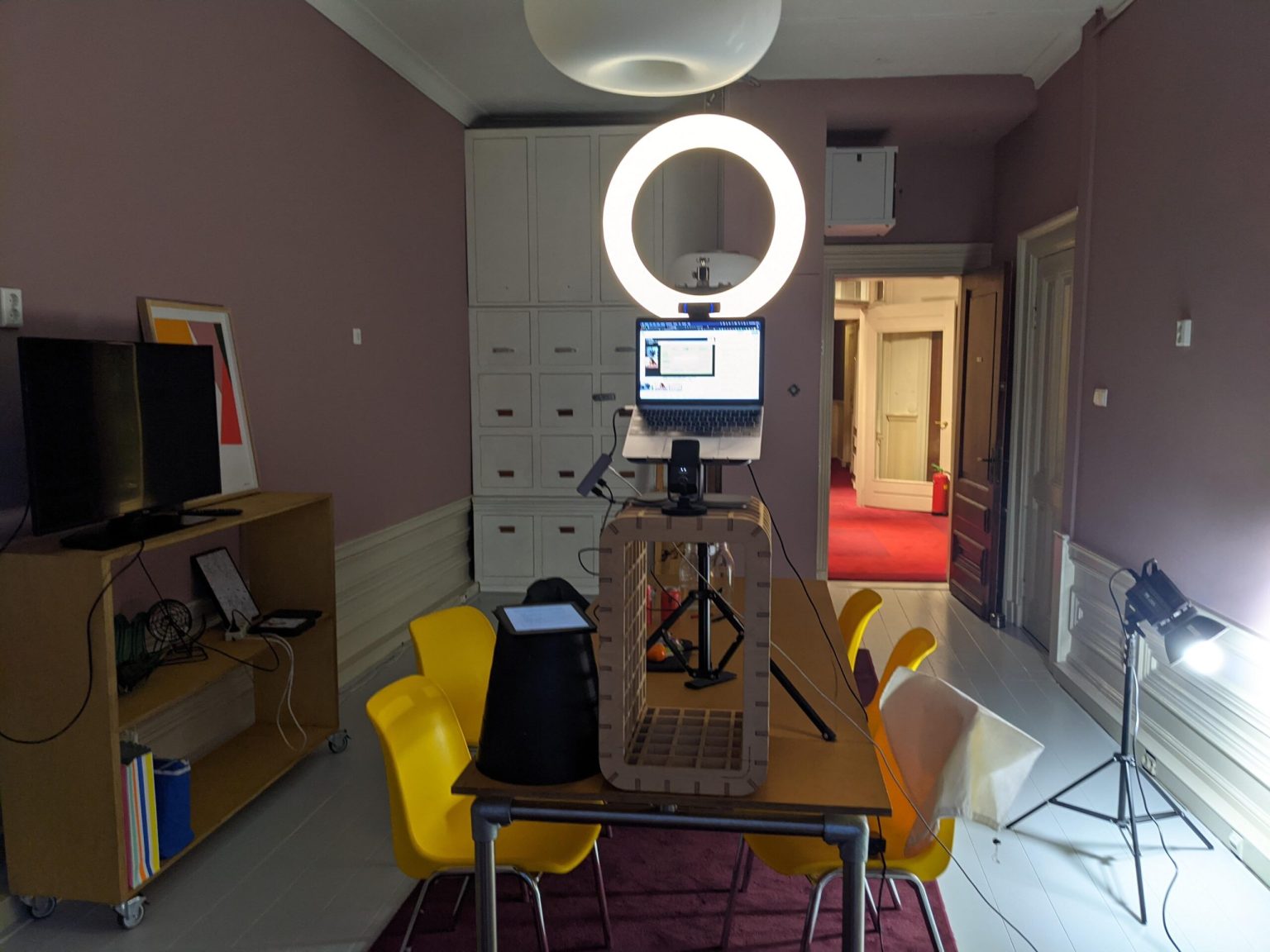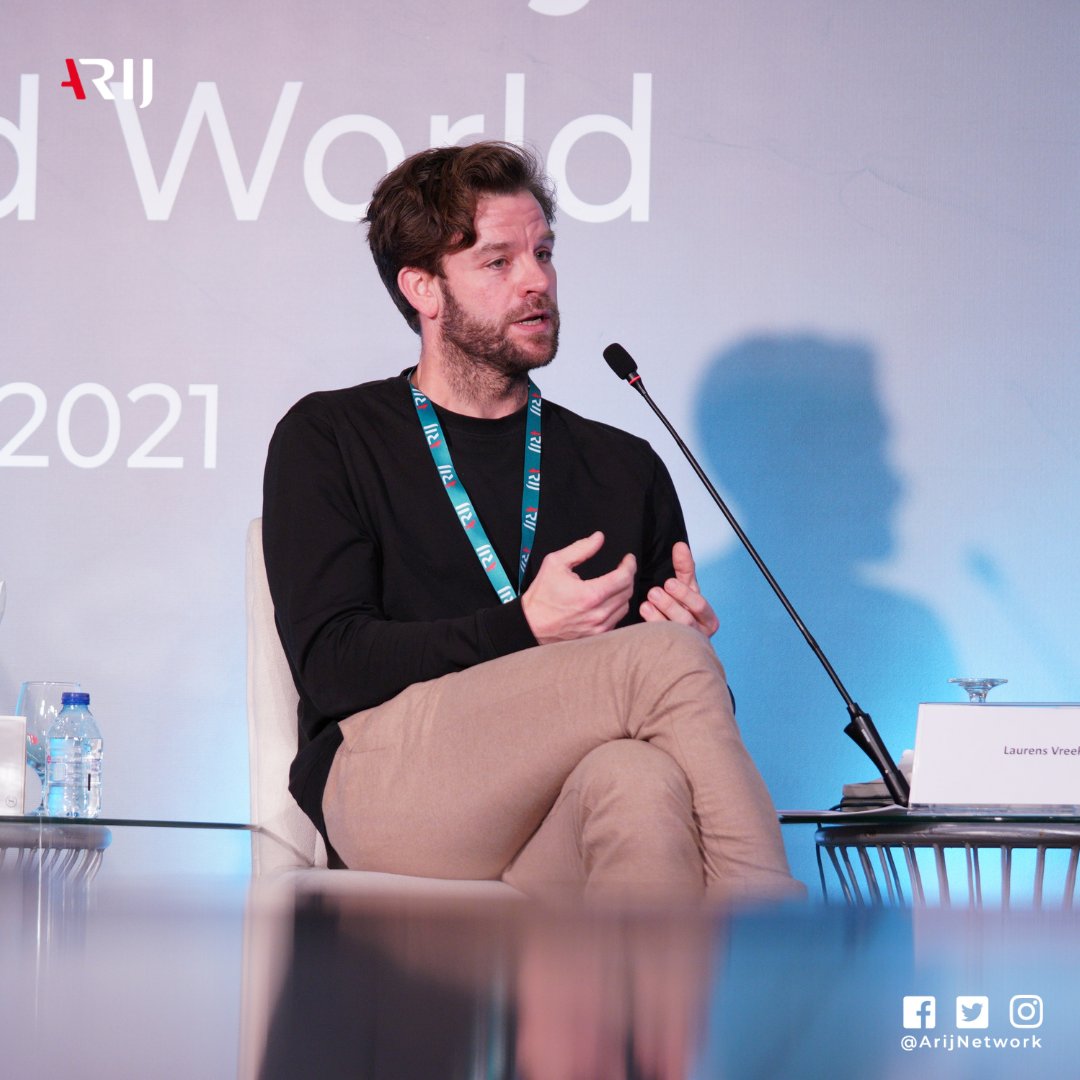Laurens Vreekamp is specialized in artificial intelligence and machine learning. He was a teacher at Hogeschool Utrecht for eight years, worked for well-known Dutch media companies and broadcasters, and did research for Google at their News Lab.
In 2020, he founded his own academy: Future Journalism Today. Through various workshops and courses, Laurens prepares “storytellers, content creators and newsmakers” for the future.
What gives you the most satisfaction in your work?
“I get the most satisfaction from working with people during the workshops: to analyse a problem and build a solution together. There are constantly new technologies emerging that you, as a maker, can apply, and we investigate what these could mean to that maker.”
You founded your own academy. Which course is most in demand?
“At this moment that’s the course ‘AI at the Studio – machine learning for media creators’. It attracts many young journalists, in addition to creative makers. These journalists follow the course to see what they can achieve in their field using artificial intelligence and machine learning. The course focuses on what AI is and, most of all, what you can do with it.”

How can AI and machine learning advance the work of journalists?
“We can now research things that previously seemed impossible. For example, Coen van de Ven (journalist at De Groene Amsterdammer ed.) has conducted research into online hatred towards female politicians. How many posts with hateful messages are there on Twitter? And are these focused on gender, on body, or ethnicity? Previously it would’ve been difficult to manually label a million tweets, that just takes too much time. But AI did make this research possible. AI and machine learning also create efficiency gains. They contribute to boring, repetitive chores such as transcribing interviews. Or let’s say you’re about to welcome a guest in your radio broadcast or podcast; you can use AI to find publications on this person and automatically get an overview of patterns, similarities and people in all of those items. You can also filter specific topics that often come up in multiple existing texts, making it easier to make connections between different documents.”
How will we, as consumers, notice these developments?
“As journalists gain more knowledge about AI and machine learning, they’ll also be able to ask better questions to the builders of these systems, and readers will become better informed. And by using new technologies in smarter ways, journalists may get more time to do better research and write more articles.”

Are there any public misconceptions about machine learning that you would like to correct?
“The biggest misconception is that it’s ‘the machines’ that do everything. Because it’s people who determine the goal and who set the parameters and that’s also where mistakes can be made. There was a public broadcaster that had optimized an algorithm to promote watching whole videos. The aim was to have videos watched in full as much as possible. From its (analytical) data, the system derived that short videos were watched in full the most. Which in the end resulted in only short videos being recommended. But that wasn’t the intention at all, because all videos needed to be watched entirely.”
How do you see the future of journalism?
“That’s a very big question. Because, what is the reason journalism exists? There’s a large group of people who say journalism exists to control power. But it also exists to help people make ‘important’ decisions such as buying new shoes, a new microwave or a house. Journalism informs people on who to vote for or on matters such as the allowance affair. What I personally think is important for the future is that editors and makers develop a vision within journalism that responds to the question: for whom do we actually work? There are different revenue models and stakeholders within the field of journalism and not everyone is always aware of that.”
Last question: what is your definition of success?
“When I’ve been able to help everyone sufficiently during a workshop or course, so that they can get going AND I’m asked back again in the future. That’s what success is for me.”
Website: futurejournalismtoday.com


